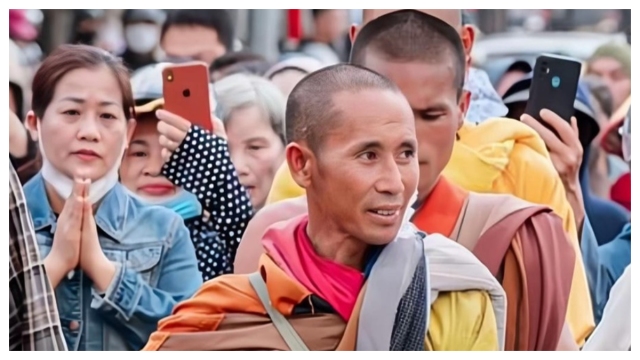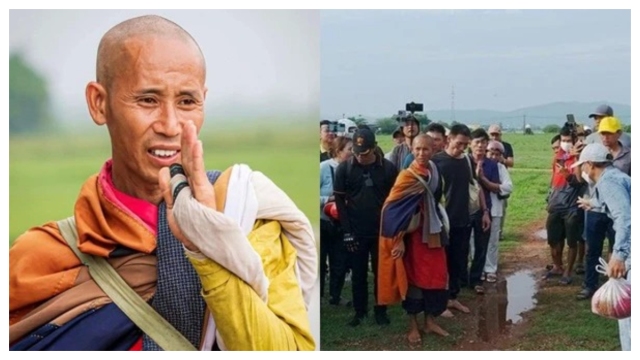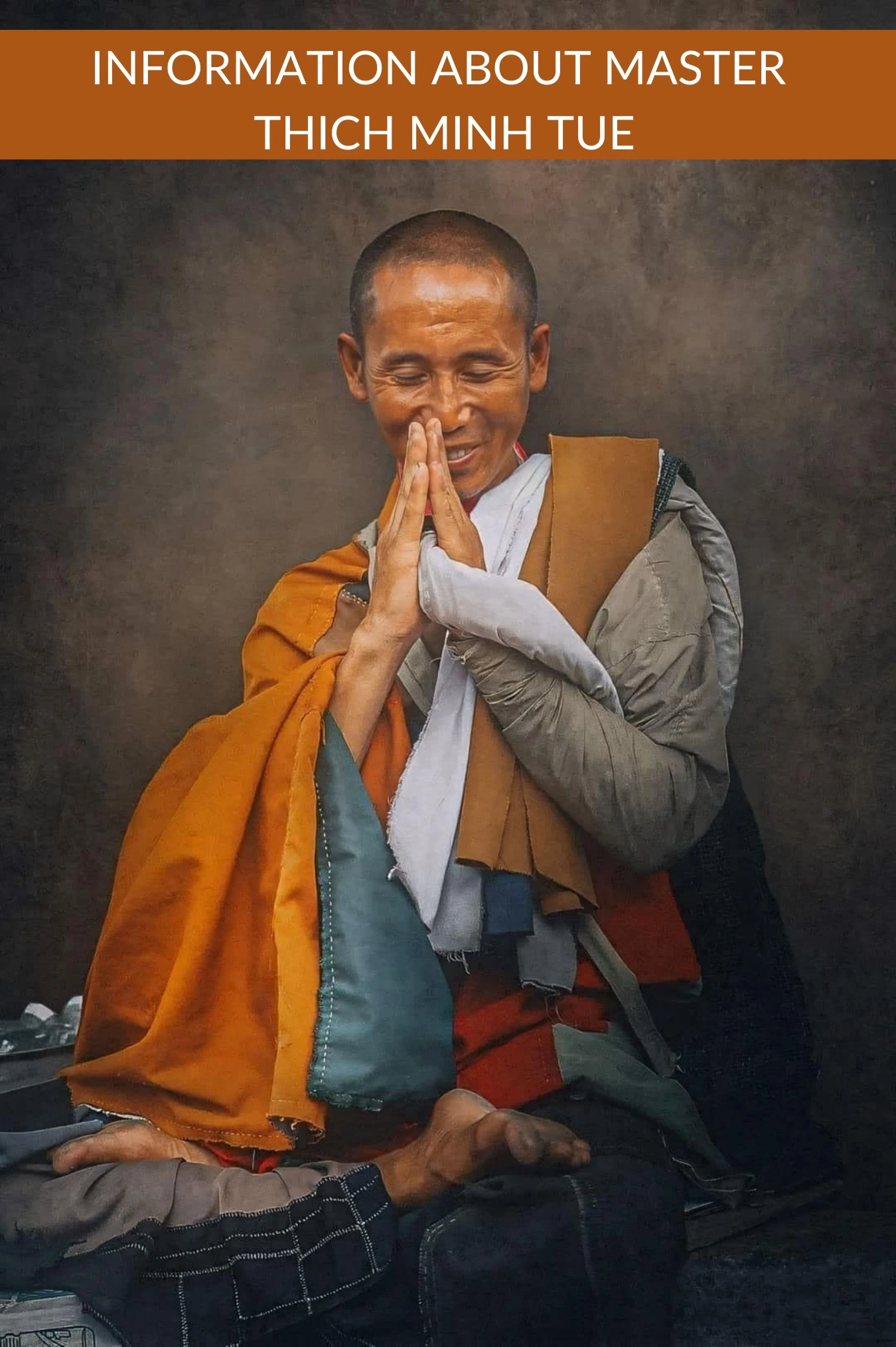Thich Minh Tue, a name that has resonated deeply within Vietnamese society, represents a unique blend of ancient Buddhist principles and modern-day reality. This article delves into the life and teachings of this remarkable individual, exploring his background, his unique practices, and the profound impact he has had on the Vietnamese people.
Who is Thich Minh Tue?
- Real Name: Le Anh Tu
- Year of Birth: 1981
- Hometown: Ky Van Commune, Ky Anh District, Ha Tinh Province
- Residence: Ia Grai District, Gia Lai Province
Thich Minh Tue is not your typical monk. He embodies a unique blend of ancient Buddhist practices and modern-day reality.
Thich Minh Tue practices 13 Ascetic Practices
- Clothing constructed of torn cloth parts.
- Use just three robes.
- Eat by going out for alms, going out for alms house by house, or eating in an alms bowl.
- Eat just one meal at lunchtime.
- Do not eat full.
- Do not store food.
- Do not keep money.
- Live alone.
- Live in cemeteries or abandoned homes.
- Live under trees.
- Live outside or in woodlands.
- Do not dwell in a fixed spot, but regularly travel.
- Sleep sitting up; do not lie down to sleep.
Duration of practice: 6 years of asceticism
- Six years of walking away from home and family.
- Six years having only one meal each day.
- Six years sleeping sitting up without a blanket.
- Six years without crying, only smiling, and wearing patched clothes without waiting for others.
- 6 years of just eating vegetarian meals.
Thich Minh Tue has travels from South to North, then North to South.
Quotes from Thich Minh Tue
- "I call myself 'Con' to consider myself a humble student on the path to enlightenment, no different from any other seeker. My aspiration is for all beings to attain Buddhahood, and I learn from every encounter on this journey."
- "I chose this path to find true freedom."
- "My sustenance is simple, one meal a day, and I do not accept any monetary offerings."
- "My clothing reflects my commitment to simplicity and minimizing waste. I utilize discarded materials whenever possible."
- "Resourcefulness is key. My alms bowl is crafted from a discarded rice cooker, a reminder to find value in unexpected places."
- "The impermanence of life compels me to live each moment with purpose and cultivate inner peace.
- "I strive for enlightenment as a way of honoring my parents and expressing my gratitude for their love and support."
- "I embrace all beings with compassion and consider myself connected to the entire human family."
- "I cultivate compassion and equanimity towards all beings, recognizing the inherent worth of every individual."
- "I extend forgiveness and understanding to all, even those who may criticize me."
- "I respond to adversity with compassion and extend well wishes to those who may cause me harm."
- "Living a virtuous life is essential. Abstaining from harmful actions is crucial for cultivating inner peace and fostering harmonious relationships."
- "My deepest wish is for all beings to find happiness and liberation."
- "My focus is not on personal reverence, but on the teachings of the Buddha and the community of practitioners."
- "I consider myself a fellow traveler on this spiritual path. We learn from each other, and our collective journey is enriched by the unique perspectives and experiences of each individual."
- "Cultivate compassion towards all beings, even those who may seem to be our adversaries."
- "Live with purpose and joy, integrating Buddhist principles into your daily life."
Conclusion
Thich Minh Tue's life is a testament to the enduring power of the human spirit and the transformative potential of living a life of simplicity and purpose. His journey continues to inspire and challenge individuals to re-evaluate their priorities and to seek deeper meaning in their lives.
Maybe you are interested:

Thich Minh Tue and the Future of Buddhism in Vietnam: A New Era of Faith and Engagement

What We Can Learn from Thich Minh Tue Phenomenon: A Reflection on Freedom, Respect, and Responsibility





